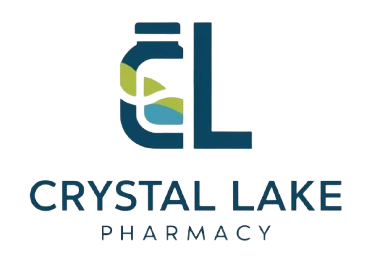Yes, vaccines are covered by both medical and prescription insurance, but which type covers your shot depends on the specific vaccine and where you get it. Most vaccines are covered at no cost to you when you use an in-network provider, thanks to rules from the Affordable Care Act.
This guide will help you understand exactly how vaccine coverage works, what you might pay out of pocket, and how to get the shots you need without breaking the bank.
Understanding Vaccine Insurance Coverage
The way vaccines are covered by insurance can be confusing. Sometimes your medical insurance pays for the shot, and sometimes your prescription insurance handles it. Here’s what you need to know.
Medical Insurance Coverage
Your medical insurance typically covers vaccines that are given in a doctor’s office or clinic. According to the Centers for Disease Control and Prevention, all Health Insurance Marketplace plans and most other private insurance plans must cover certain vaccines without charging a copayment or coinsurance when provided by an in-network provider. This means you won’t pay anything out of pocket for covered vaccines.
The vaccines usually covered by medical insurance include:
- Annual flu shots
- COVID-19 vaccines
- Childhood vaccines (MMR, polio, etc.)
- Travel vaccines given at your doctor’s office
Prescription Insurance Coverage
Prescription insurance, also called pharmacy benefits, covers vaccines you get at a pharmacy. Many common vaccines are now available at your local pharmacy, making them easy to get during a quick trip to pick up other medications.
Vaccines commonly covered by prescription insurance include:
- Flu shots at pharmacies
- Shingles vaccines
- Some travel vaccines
- Pneumonia vaccines
How Medicare Handles Vaccine Coverage
Medicare works differently than regular health insurance. It splits vaccine coverage between two parts of the program.
Medicare Part B Coverage
Medicare Part B covers four important vaccines as part of its preventive care benefits:
- Flu vaccine (annual shot)
- COVID-19 vaccine
- Pneumonia vaccine (two shots, one year apart)
- Hepatitis B vaccine (for people at medium to high risk)
The Medicare.gov official website confirms that you pay nothing for these vaccines when you see a provider who accepts Medicare.
Medicare Part D Coverage
Medicare Part D covers all other recommended vaccines. Medicare Part D covers all commercially available vaccines needed to prevent illness. This includes:
- Shingles vaccine
- Tdap vaccine (tetanus, diphtheria, and whooping cough)
- RSV vaccine
- Other vaccines your doctor recommends
The good news is that there is no cost sharing with Part D-covered vaccines, even if you get the vaccine from a healthcare professional who is outside your plan’s network.
What Vaccines Cost Without Insurance
If you don’t have insurance, vaccine costs can add up quickly. Here’s what you might expect to pay:
Common Vaccine Costs
Without insurance, vaccines can be expensive:
- The COVID vaccine costs $90 to $200 without insurance at a retail pharmacy
- Without insurance, something like the shingles vaccine could cost around $200
- Childhood immunizations can cost upwards of $650 without insurance
A Kaiser Family Foundation analysis shows that vaccine pricing varies significantly between programs and insurance types, with uninsured individuals facing the highest costs.
Ways to Save Money
Even without insurance, you have options for getting vaccines at lower costs:
State Health Department Programs Many states offer free or low-cost vaccines through their health departments. Free or low-cost COVID-19 vaccines are still available through many state and local immunization programs.
Federally Qualified Health Centers Federally funded health centers provide preventive services and wellness care, including vaccines — and may offer sliding fees based on your income.
Manufacturer Programs Some vaccine makers offer help paying for vaccines. GSK vaccines to eligible low-income adults who do not have third-party coverage for vaccines and similar programs exist for other manufacturers.
Special Programs for Children and Adults
Several programs help people get vaccines at no cost, even without insurance.
Vaccines for Children (VFC) Program
The Vaccines for Children Program provides all recommended vaccines at no cost for children under age 19 who meet certain criteria:
- Have no insurance
- Are enrolled in Medicaid
- Are American Indian or Alaska Native
- Are underinsured (insurance doesn’t cover vaccines)
Adult Vaccine Programs
For adults without insurance, options include:
- State immunization programs
- Community health centers
- Pharmacy discount programs
- Local health department clinics
Getting Vaccines at Your Pharmacy
Many people prefer getting vaccines at their local pharmacy because it’s convenient. You can often get a flu shot or other vaccines during a regular pharmacy visit.
Pharmacy Benefits
When you get vaccines at a pharmacy:
- Most insurance plans cover them at no cost
- You can often get them without an appointment
- Many pharmacies offer multiple vaccine types
- It’s convenient to combine with prescription pickups
For residents of Crystal Lake and surrounding areas, Crystal Lake Pharmacy offers convenient vaccine services with insurance billing to help make your shots affordable.
Insurance Requirements
To get vaccines covered at pharmacies:
- Use an in-network pharmacy
- Bring your insurance card
- Ask about coverage before getting the shot
- Some plans may require prior authorization
Understanding Your Insurance Plan
Not all insurance plans are the same when it comes to vaccine coverage. Here’s what to look for:
Check Your Benefits
Before getting any vaccine:
- Call your insurance company to confirm coverage
- Ask about in-network requirements
- Find out if you need a referral
- Check if there are any copays or deductibles
Know Your Network
Be sure to get your covered vaccine from an in-network facility, healthcare professional, or pharmacy to avoid cost sharing. Going out of network could mean paying the full cost yourself.
Medicaid and CHIP Coverage
Government insurance programs have excellent vaccine coverage.
Medicaid Benefits
According to the Department of Health and Human Services, beginning October 1, 2023 most adults with coverage from Medicaid and CHIP will be guaranteed coverage of all vaccines recommended by the Advisory Committee on Immunization Practice at no cost to them.
This means if you have Medicaid, you can get recommended vaccines at no cost.
CHIP Coverage
Children’s Health Insurance Program (CHIP) covers all recommended childhood vaccines at no cost. This includes vaccines like:
- Routine childhood immunizations
- Flu shots
- COVID-19 vaccines
- Any other CDC-recommended vaccines
Employer Insurance and Vaccines
Most employer-sponsored health insurance plans cover vaccines well.
Typical Coverage
Employer plans usually cover:
- Annual flu shots
- Required vaccines for work
- Travel vaccines (sometimes)
- Preventive vaccines at no cost
Workplace Vaccine Programs
Many employers offer:
- On-site flu shot clinics
- Reimbursement for vaccines
- Time off for vaccination appointments
- Wellness incentives for getting vaccinated
Travel Vaccines and Insurance
If you’re planning to travel, you might need special vaccines. Coverage for travel vaccines varies by insurance plan.
Commonly Covered Travel Vaccines
Some travel vaccines that insurance often covers:
- Hepatitis A and B
- Typhoid
- Yellow fever (sometimes)
- Routine vaccines like tetanus boosters
What’s Usually Not Covered
Travel vaccines that insurance typically doesn’t cover:
- Japanese encephalitis
- Meningococcal vaccines for certain travel
- Malaria prevention medications
- Some destination-specific vaccines
If you’re planning to travel, check with your pharmacy about what vaccines you should get before traveling and whether they’re covered.
Questions to Ask Your Insurance Company
Before getting any vaccine, call your insurance company and ask:
- Is this vaccine covered by my plan?
- Do I need to use an in-network provider?
- Will I have any out-of-pocket costs?
- Do I need a prescription or referral?
- Are there any age restrictions on coverage?
How to Appeal Insurance Denials
If your insurance denies coverage for a vaccine you think should be covered:
Steps to Take
- Get the denial in writing – Ask for the specific reason
- Review your plan benefits – Check if the vaccine should be covered
- File an appeal – Follow your plan’s appeal process
- Get doctor support – Ask your doctor to write a letter explaining why you need the vaccine
- Contact your state – Your state insurance department can help
When to Get Help
Consider getting help if:
- The vaccine is recommended by the CDC
- Your doctor says you need it for your health
- The insurance company won’t explain the denial clearly
- You think the denial is wrong
Staying Up to Date on Vaccine Coverage
Vaccine recommendations and insurance coverage can change. Here’s how to stay informed:
Regular Check-ins
- Review your insurance benefits yearly
- Ask about new vaccines during doctor visits
- Check CDC recommendations for your age group
- Update your prescription medications and vaccine records
Working with Your Pharmacy
Your pharmacist can help you understand:
- What vaccines you need
- Whether they’re covered by insurance
- How to get them at the lowest cost
- When to get booster shots
For comprehensive medication management, including vaccine scheduling, consider medication therapy management services that can help coordinate all your health needs.
Final Thoughts
Vaccines are one of the best ways to protect your health and the health of your family. The good news is that most insurance plans cover vaccines at no cost to you when you follow the plan rules.
Whether you have medical insurance, prescription insurance, Medicare, or Medicaid, there are options to get the vaccines you need without paying high out-of-pocket costs. If you don’t have insurance, programs exist to help you get vaccines at reduced or no cost.
The key is to understand your coverage, use in-network providers, and ask questions before getting any vaccine. Your pharmacist and doctor can help you navigate insurance coverage and make sure you get the protection you need.
Don’t let cost concerns keep you from getting vaccinated. With the right information and resources, you can protect your health and your wallet at the same time.

